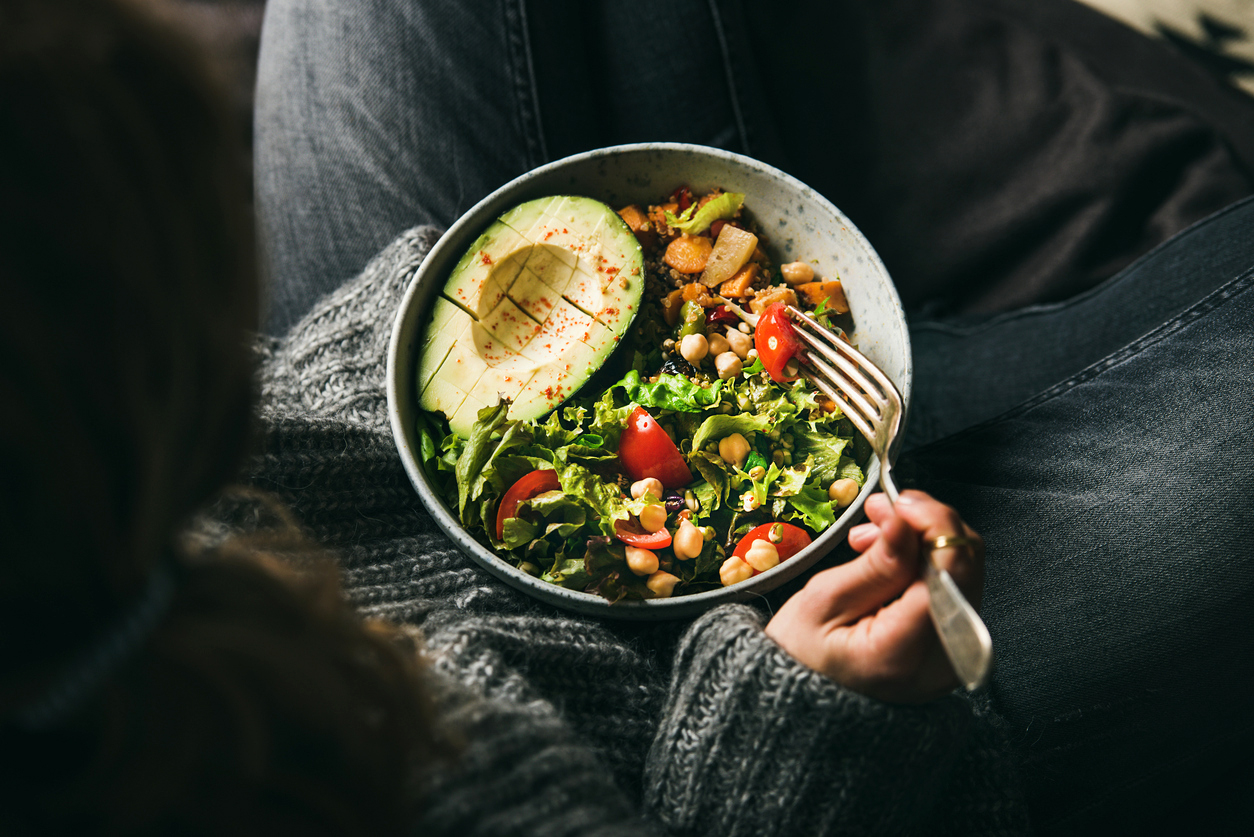A Friendly Guide to Eating and Supplements for Ulcerative Colitis

What’s Ulcerative Colitis All About?
Ulcerative colitis is a type of inflammatory bowel disease (IBD) that causes inflammation and sores in your colon and rectum. It can lead to rough days with cramping, frequent bathroom trips, and low energy. While diet doesn’t cause UC, it can either soothe or irritate your gut, especially during flares. Pairing smart food choices with targeted supplements can help you feel more in control and keep symptoms in check.
Related: Is Your Body Lacking Iron? 12 Signs to Watch Out For and Best Supplements
Foods to Steer Clear of During a Flare
When UC flares up, your colon’s already stressed, so some foods can make things worse. Here’s what to skip:
-
High-Fiber Stuff: Crunchy veggies like broccoli or kale, whole grains, nuts, seeds, and fruit skins can be tough to digest and may ramp up cramping or diarrhea.
-
Spicy Foods: That spicy taco or curry might taste amazing, but chili peppers and hot spices can irritate your gut and worsen symptoms.
-
Dairy (If It Doesn’t Agree): Lots of folks with UC struggle with lactose. Milk, cheese, or ice cream can lead to bloating, gas, or loose stools. Try almond or oat milk if dairy’s a no-go.
-
Greasy Foods: Fried chicken, burgers, or creamy sauces can trigger gas and diarrhea, especially during a flare.
-
Sugary Treats: Candy, soda, and processed snacks with added sugars can mess with your gut bacteria, potentially making symptoms worse.
-
Caffeine and Alcohol: Coffee, energy drinks, or wine can speed up your bowels and dehydrate you, which isn’t great during a flare.
Try keeping a food diary to spot your personal triggers. You might even work with a doctor or nutritionist on an elimination diet—cutting out these foods for a few weeks, then slowly adding them back to see what your gut can handle.
Best Foods to Eat During a Flare
When your UC is acting up, go for gentle, easy-to-digest foods that won’t irritate your colon but still give you the nutrients you need. Here’s what to reach for:
-
Low-Fiber Fruits: Bananas, melons, or peeled, cooked apples are kind to your gut and pack vitamins like potassium.
-
Refined Grains: White rice, white bread, or plain pasta are low-fiber options that are easier on your system than whole grains.
-
Lean Proteins: Eggs, tofu, fish, or skinless chicken give you protein to heal and rebuild without the extra fat.
-
Cooked Veggies (Not the Gassy Ones): Think peeled potatoes, squash, or asparagus tips. These are less likely to cause bloating or discomfort.
-
Omega-3 Foods: Salmon, mackerel, or a drizzle of flaxseed oil can help calm inflammation in your gut.
-
Probiotics (If You’re Cool with Dairy): Plain yogurt with live cultures might help balance your gut bacteria, but only if dairy doesn’t trigger you.
Aim for small, frequent meals—maybe four to six a day—and chew slowly to make digestion easier. Drink plenty of water or low-sugar electrolyte drinks to stay hydrated, especially if diarrhea’s an issue.
Curcumin: The Turmeric Trick for UC
Curcumin, the active ingredient in turmeric, is like a superhero for inflammation. It’s been studied for UC because it might help calm your gut and keep flares at bay. Here’s what we know from clinical trials up to 2025:
-
How Much to Take: Studies often use 1,000–3,000 mg of curcumin daily, split into two doses (like 1,500 mg morning and night). A 2021 study paired 3,000 mg daily with mesalamine and saw better remission rates in mild-to-moderate UC.
-
Boosting It: Curcumin absorbs better with a pinch of black pepper (piperine), which can make it up to 20 times more effective.
-
Is It Safe?: Most studies say curcumin’s safe up to about 3 mg per kg of body weight daily. But high doses might cause loose stools for some. Always check with your doctor before popping curcumin pills.
Adding a sprinkle of turmeric to your cooking is a tasty start, but for therapeutic doses, a supplement might be the way to go—just talk to your doc first.
Finding a Medicaid-Covered Nutritionist
A nutritionist who gets IBD can be a game-changer, helping you craft a diet that avoids triggers and keeps you nourished. Here’s how to find one with Medicaid:
-
Does Medicaid Cover It?: Some states cover medical nutrition therapy (MNT) for conditions like UC, especially if your doctor says it’s necessary. Check with your state’s Medicaid office or peek at healthcare.gov for details.
-
How to Find One: Search for registered dietitians (RDs) who specialize in gut health through the Academy of Nutrition and Dietetics’ “Find an Expert” tool or the Crohn’s & Colitis Foundation. Your gastroenterologist might also recommend someone.
-
What to Do: Call your Medicaid plan to confirm coverage, get a referral if needed, and make sure the RD accepts Medicaid. They’ll help you tweak your diet, suggest supplements, and maybe even guide you through an elimination plan.
Having an RD in your corner means you’re not guessing what works—you’re getting a plan tailored to you.
Vitamin D3+K2: A Sunny Boost for UC
Low vitamin D is super common in UC, thanks to inflammation and trouble absorbing nutrients. It’s linked to more flares, so topping up with D3 (and K2 for bone health) could help:
-
Why It Helps: A 2019 study showed 2,000 IU of vitamin D3 daily for 12 weeks improved symptoms and quality of life in UC patients with low levels. K2 helps direct calcium to your bones, which is key if you’re on steroids that weaken them.
-
How Much?: A daily dose of 2,000 IU of D3 is a safe starting point, aiming for blood levels above 75 nmol/L. Your doctor can check your levels and adjust as needed.
-
Food vs. Pills: You’ll find D in fatty fish or fortified foods, but supplements (often with a bit of oil for absorption) are usually the go-to.
Talk to your doctor before starting, especially to avoid overdoing it or messing with other meds.
Related: 5 Best Energy Vitamins and Supplements to Boost Productivity
Colostrum for Leaky Gut?
Colostrum, the first milk mammals produce, is packed with nutrients and antibodies that might help with “leaky gut” (when your gut lining lets stuff through too easily). It’s a hot topic for UC, but the science is still catching up:
-
What It Might Do: Colostrum’s growth factors and immunoglobulins could strengthen your gut barrier and ease inflammation. Early studies hint at benefits for UC, but we need more research.
-
How to Use It: There’s no standard dose yet—some try 10–20 g daily. Check with your gastroenterologist first.
-
Heads-Up: Colostrum might upset your stomach, and if you’re allergic to dairy, steer clear.
Final Thoughts
Ulcerative colitis can be a tough ride, but you’ve got tools to make it smoother. Skip trigger foods like spicy or greasy stuff during flares, and lean on gentle options like bananas, white rice, and lean proteins. Curcumin, vitamin D3+K2, and maybe colostrum could give your gut a boost, but always run supplements by your doctor. A Medicaid-covered nutritionist can help you create a diet that’s just right for you, keeping flares at bay and nutrients up. With a little trial and error, you can find what works and feel more like yourself again.
ADVERTISEMENT





